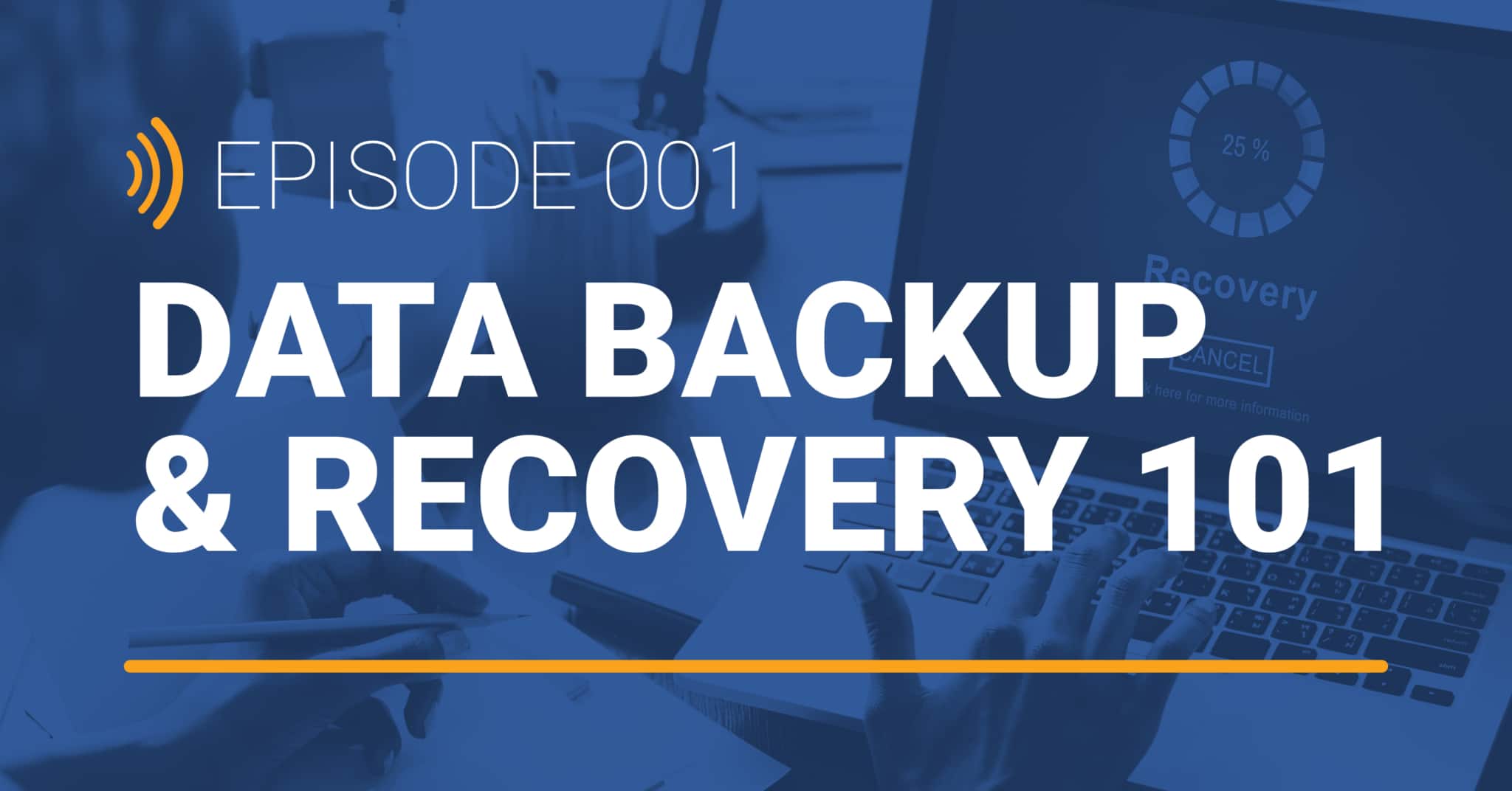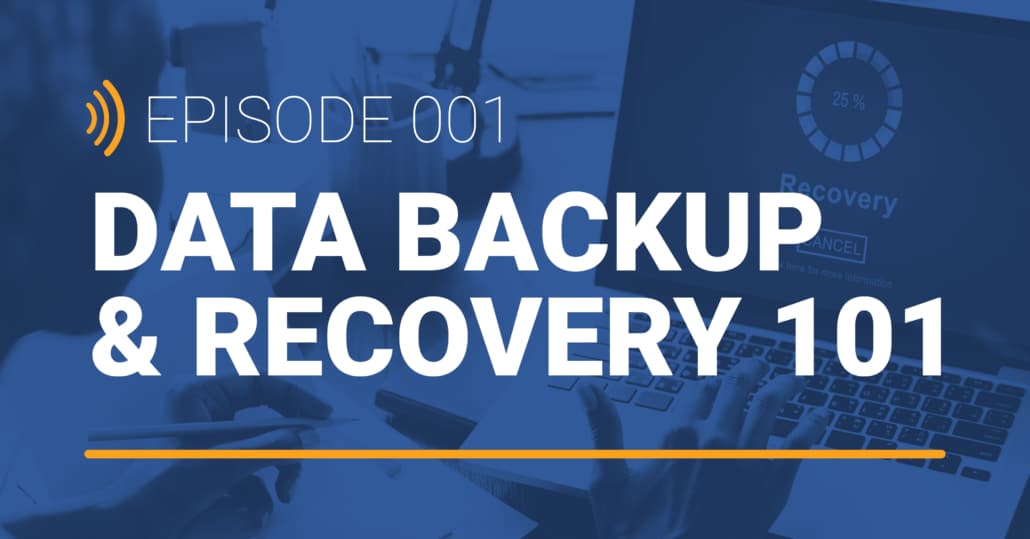TechTalk Detroit: Data Backup & Disaster Recovery
The first episode of TechTalk Detroit is live! Chuck Lobert & Brian Spurgeon discuss data backup and what businesses need to know about it.
Data loss can happen without notice.
You could come into work and find that flooding has fried your systems. Or you could download the wrong attachment from a seemingly safe email, and find that your data is being held at ransom.
Or you may just accidentally delete it – it happens to all of us.
But it’s OK, right? Because all your data is backed up. Or, at least, it should be. This is precisely what Vision Computers Solutions’ Chuck Lobert & Brian Spurgeon discussed on the first episode of TechTalk Detroit:
The Importance Of Data Backup?
“People are worried about, how do they know if their backups are working, how do they know if everything’s protected, how long will it take for them to get back up and running,” says Chuck Lobert. “Unfortunately, a lot of business owners don’t know the answers to these questions, and that’s one of the things they worry about.”
Data backup is a necessary part of cybersecurity, disaster recovery, and business continuity. Failing to keep your data backed up is like playing with fire. You may not have experienced any real data loss yet, but it’s only a matter of time. That’s why you need to keep your data backed up.
“Honestly, backups are one of the most important things that a business should have under control,” says Brian Spurgeon. “We see it all the time, new clients don’t have a backup report, they don’t know if backups are working, and for me, it’s crazy.”
Why Does Your Data Need To Be Backed Up?
While almost anyone using a computer for work would understand the nature of why backing up your data is essential (don’t forget that hard copies are often still filed in triplicate as a contingency), likely, you don’t know of each and every application that an effective data backup can have.
Cybercrime
Data loss is often the result of poor digital security; without the right defenses, cybercriminals can quickly infect an IT system with ransomware or other types of malware and compromise company data.
In a ransomware attack, a hacker gains access to an organization’s computer systems.
Typically, an unsuspecting employee clicks on an emailed attachment that appears to be a bill or other official document. In actuality, the attachment installs a malicious software program (malware) onto the computer system. Once embedded, the malware allows a hacker to access critical systems, often giving complete remote control data and access.
If you have you have a data backup solution, then it doesn’t matter if your data has been encrypted. You can just replace it with your backup, simple as that.
Human Error
A majority of cybersecurity services offered today include the best in vital technologies, from firewalls to anti-malware to data encryption and more. However, as important as this technology is, on its own, it merely isn’t enough. The key to truly comprehensive cybersecurity (and therefore, data protection and data backup) is simple, yet often overlooked: the user.
Much of data protection is dependent on the user, and as such, it’s vital that you properly educate your employees in safe conduct. The more your workforce knows about the security measures you have in place, the more confidently they can use the technology is a secure manner.
Human error can be detrimental to data integrity. Without a viable backup, all it takes is one accidental click to delete a file, or one spilled coffee to fry a local hard drive.
Maintaining Compliance
When it comes to modern compliance requirements, redundant data backups are critical. You’ll want to make sure you know what’s required of your industry’s compliance regulations, and make sure you have backup methods in place to meet those.
Natural Disasters
Don’t forget that an inconveniently timed power outage could cost you hours of work on an important project.
Do You Have A Viable Data Backup Solution In Place?
“It’s not a matter of if something happens, it’s a matter of when something happens,” says Brian. “What’s your plan to get back on your feet?”
The best way to enhance your business’ data backup capabilities is to work with a capable IT company. Be sure to work with one that can fulfill the following requirements:
- Comprehensive Backups: The backup solution should provide both local onsite backup for quick recovery in instances of data loss, as well as an offsite cloud-based backup for when your business is hit with a critical disaster.
- Acceptable RTO & RPO: Not all backups services are the same, which is why you need to understand the following two metrics:
- (RTO) Recovery Time Objective: How long will it take to recover files, applications, server or full infrastructure?
- (RPO) Recovery Point Objective: RPO is governed by the frequency of backups. In the old days, backups were performed at the end of the week or at the end of the day. Today backups can be managed continuously. This means very little to no data loss in the event of a recovery, so there’s less lost work to re-do after recovery.
- Regular Testing: You can’t assume that your backups will just work when needed. They should regularly test your backups to verify their effectivity if something goes wrong with your onsite data.
The key is in finding the right backup solution to keep your data protected against hardware failure, ransomware, human error, and whatever else may occur. If you’re unsure of where to begin, then get in touch with Vision Computer Solutions for expert assistance.



